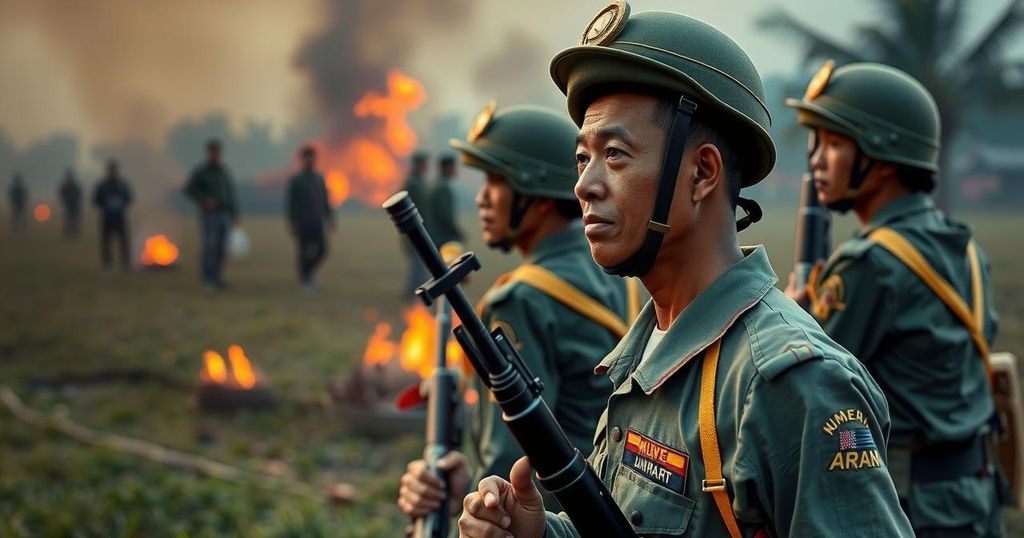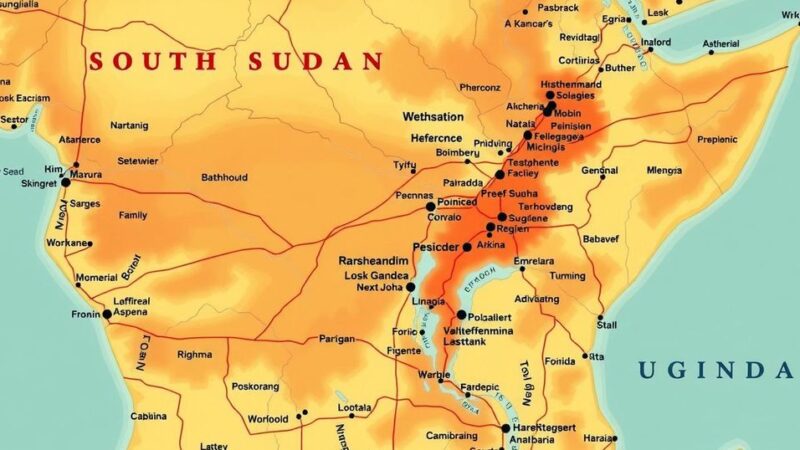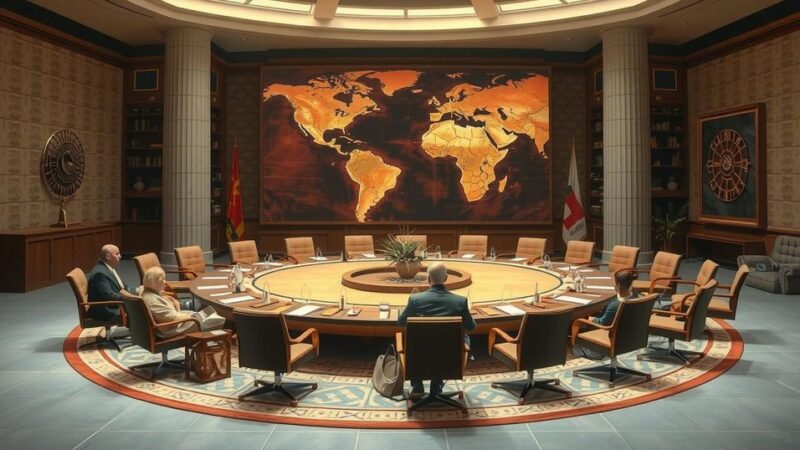The Arakan Army has become a pivotal force in Myanmar’s civil war, controlling significant areas in Rakhine province and posing risks of refugee outflows into Bangladesh. India’s strategic interests are at stake, as the rise of ethnic rebel groups may lead to increased security threats and humanitarian crises. Geopolitical dynamics involving China complicate the situation, necessitating urgent dialogue and engagement from India with both the junta and ethnic factions to navigate this unfolding crisis.
The ongoing civil war in Myanmar has seen the Arakan Army emerge as a dominant ethnic rebel group, seizing control over significant territories within Rakhine province. Following the military coup in 2021 that displaced the democratic government, the junta has struggled to maintain order, particularly along the Bangladesh border, which could result in renewed Rohingya refugee flows. Despite being largely overshadowed by other global conflicts, the turmoil in Myanmar poses critical implications for its neighboring countries and India in particular, which must navigate the ramifications of this instability.
The civil conflict is fueled by historical grievances, where ethnic armed organizations, including the Arakan Army, seek autonomy and access to valuable resources. As part of the Three Brotherhood Alliance, the Arakan Army has achieved notable territorial advances, including the capture of Lashio, signaling a shift in military command dynamics within Myanmar. Increased violence could potentially spill over into Bangladesh as the Arakan Army reportedly extends its influence across the border, raising concerns about regional security and the humanitarian crisis involving Rohingya refugees.
Interestingly, the plight of the Rohingya, who are predominantly denied recognition by the Myanmar government and have faced severe repression, complicates the situation. Despite the Arakan Army expressing interest in projecting a unified front that ostensibly includes the Rohingya, their historical engagement has often been marred by violence against this community. This wariness underlines the complex interplay of local ethnic politics in an already fraught landscape.
India’s vested interests in the region necessitate careful consideration of these developments. The rise of Myanmar’s rebel groups, coupled with fears of weapon proliferation and drug trafficking, directly impacts India’s northeastern states. Consequently, India has enacted stricter regulations governing border movement in response to these emerging threats.
The overarching geopolitical landscape reveals a concerning trend of regional countries gravitating toward China, which has deepened its involvement with both Myanmar’s military and rebel factions. China’s investments in critical infrastructure significantly underscore its strategic interests, particularly the oil and gas sector, further entrenching its influence in Myanmar. Notably, the Arakan Army’s actions could challenge India’s own development projects, such as the Kaladan project aimed at enhancing connectivity between India and Myanmar.
Recognizing the necessity for dialogue, India has engaged both the military junta and ethnic armed organizations to safeguard its interests. Experts advocate for facilitating discussions between conflicting parties to foster a more inclusive democratic process in Myanmar. As articulated by Ms. Cchavi Vasisht, senior research associate at Chintan Research Foundation, “India needs to make further efforts to increase our engagements with AA. To protect our bordering areas as well as the Kaladan project which crosses through the Rakhine state.” Such initiatives would not only benefit regional stability but also pave the way for a potential resolution to the ongoing conflict.
Understanding the Myanmar conflict requires a historical perspective, dating back to its independence when ethnic groups began advocating for autonomy and control over their resources. The Arakan Army is the largest of these groups, fighting the military regime that has historically suppressed various ethnic communities, particularly since the military coup in 2021. The coup led to increased violence and instability, contributing to humanitarian crises, notably the displacement of the Rohingya population. Additionally, geostrategic interests complicate the situation involving neighboring countries like India and China, each striving to secure their influence through varied diplomatic engagements and investments.
The situation in Myanmar remains precarious, with the Arakan Army’s growing influence signaling a potential escalation in the conflict that could have significant regional repercussions. India, recognizing both the risks of instability and the humanitarian crisis involving the Rohingya, must adopt a dual approach of engaging both the junta and ethnic groups to safeguard its strategic interests while supporting an inclusive resolution to the conflict. The interplay of regional dynamics, particularly with China’s assertive investments in Myanmar, further complicates the geopolitical landscape, demanding astute diplomatic maneuvering from India to navigate this complex theatre.
Original Source: www.ndtv.com






